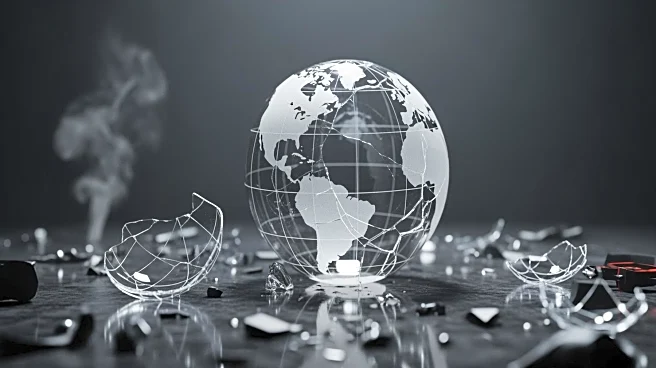What's Happening?
Indian security agencies are investigating a deadly explosion in New Delhi that killed at least eight people. The blast occurred near a subway station during the evening rush hour and is being considered
a possible terrorist attack. This incident is the deadliest in India's capital since a bombing in 2011. The investigation is ongoing, with authorities exploring all possibilities, including the involvement of terrorist groups potentially linked to Pakistan.
Why It's Important?
The explosion in New Delhi raises concerns about regional security and the potential for escalating tensions between India and Pakistan. India has previously accused Pakistan of harboring terrorist groups responsible for attacks on Indian soil. The incident could strain diplomatic relations and impact regional stability, especially given the history of conflict in the Kashmir region. The attack also highlights vulnerabilities in urban security and the need for enhanced protective measures in major cities.
What's Next?
Prime Minister Narendra Modi has vowed to bring those responsible to justice, indicating a strong governmental response. The investigation will likely focus on identifying the perpetrators and preventing future attacks. Increased security measures may be implemented in New Delhi and other major cities to safeguard against similar incidents. The situation could lead to heightened military and diplomatic activity between India and Pakistan, with potential international involvement in peacekeeping efforts.
Beyond the Headlines
The explosion underscores the ongoing challenges of counter-terrorism efforts in South Asia. It raises questions about the effectiveness of current security protocols and the need for international cooperation in combating terrorism. The incident may also influence public opinion and policy decisions regarding national security and foreign relations.









